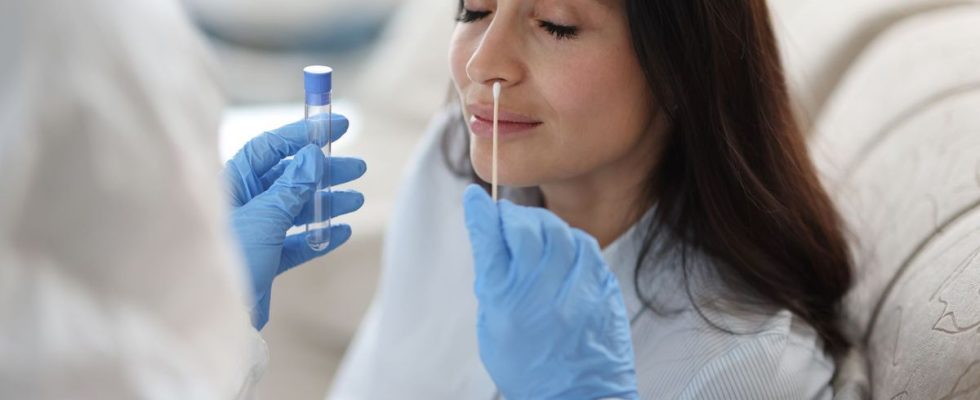Published on
Updated
Reading 2 mins.
in collaboration with
Dr Gérald Kierzek (Medical Director of Doctissimo)
New version of the Covid-19 virus, the EG5.1 variant, also nicknamed Eris, seems to be gaining momentum in France. What to do if you are infected with the virus? Update with Dr Gérald Kierzek, emergency doctor and medical director of Doctissimo.
The Covid-19 is back in France. Named EG5.1 by scientists and quickly dubbed Eris, this new variant emerged a few weeks ago and quickly spread through the population. So what if you are infected or think you are? The answers of Dr Gérald Kierzek, emergency doctor and medical director of Doctissimo.
Doctissimo: Is it a more serious variant than Omicron?
Dr Gerald Kierzek : A priori, no. This new Eris or EG5.1 variant is not more virulent than the Omicron sub-variant, to which it is related. We are faced with benign, superficial and not very serious ENT forms. There is little reason to worry about this new variant at this time.
Should you test yourself or be tested?
Dr Gerald Kierzek : The question is rather to ask oneself if one “can” or if one “must”. The interest in being tested is limited: the SI-DEP system no longer exists, we no longer receive text messages informing of the result, I would say that overall, no, there is no obligation. Afterwards it is always possible to do so, in pharmacies where it is covered for people vaccinated up to 70% by Social Security, supplemented by mutual insurance, but it is not covered for people who have not been vaccinated. .
There is also the solution of self-tests, the reliability of which is not extraordinary: a negative result will not necessarily mean that the person is not contaminated. Finally, I would say that you have to use common sense: test or not, it doesn’t change anything about what to do, so as not to contaminate those around you.
Exactly, what are these rules?
Dr Gerald Kierzek : Strict isolation, as may have been the case, is no longer mandatory. But once again, we avoid visiting fragile people, being contaminated as with any virus. And we wear a surgical mask, if we have to find ourselves in a confined space, to avoid contaminating others. Outside, at the beach, for example, there is no risk, so there is no need to wear a mask.
When should you worry?
Dr Gerald Kierzek : We can advise to monitor its saturation with a saturometer, which we must have at home. If saturation decreases, breathing difficulties increase or other symptoms appear (chest pain, high fever, etc.), you should consult a doctor quickly. And for fragile people, immunocompromised for example or affected by cancer, you must consult your doctor who will judge the advisability of prescribing antivirals.
